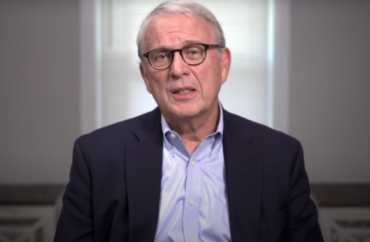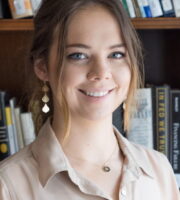
‘Public universities have no business punishing professors simply because they hold different views’
A former University of Louisville professor who criticized aspects of transgender ideology continues to fight for his free speech rights.
Dr. Allan Josephson, a psychiatrist, will likely hear in the next several months if the Sixth Circuit Court of Appeals will allow him to pursue his claims against medical school officials who played a role in his ouster, according to his attorney.
Alliance Defending Freedom senior counsel Travis Barham said via a media statement to The College Fix he hopes “that whatever route the Sixth Circuit chooses, the end result is that Dr. Josephson will have the opportunity to present his case to a jury of his peers.”
His recent comments came several weeks after he argued in court that university officials do not have “qualified immunity” that shields them from being sued for not renewing Josephson’s (pictured) contract after he criticized transgender drugs and surgeries for minors at a Heritage Foundation event.
During the hearing, the university contended that Josephson’s dismissal was justified and his First Amendment protection was negated because he made his comments, according to the school, in his role as a medical school professor.
However, the university attorney said during the hearing, when questioned by Judge Richard Griffin, that the medical school did not require Josephson to participate or pay him for his time.
The College Fix also contacted the University of Louisville’s Office of the Dean and Office of Communications. While the dean’s office did not immediately respond, the communications office declined to comment, citing the ongoing litigation.
The university fired Josephson in 2019 after he offered his personal remarks and medical expertise on the treatment of patients with gender dysphoria in a panel discussion at The Heritage Foundation, as previously reported by The College Fix.
He said “transgender ideology…is neglectful of the need for developing coping skills and problem solving skills in children.” Josephson is seeking financial compensation and reinstatement to his faculty position at the university.
Barham told The Fix Josephson’s battle “illustrates why courts must ensure that public universities respect the free speech rights of professors.”
His client “had a sterling record as a scholar, clinician, and leader.” In its lawsuit, ADF has argued that Josephson turned around the “struggling” Division of Child and Adolescent Psychiatry and Psychology.
MORE: Abortionists affiliated with University of Louisville stop working at facility in face of pressure
“Professors should not fear for their careers when they accept speaking opportunities. After all, universities should welcome different viewpoints and encourage civil discourse,” Barham said. “They should be marketplaces of ideas, not assembly lines for one type of thought.”
When asked about the broader implications of the case for academic freedom in higher education, Barham said:
Public universities have no business punishing professors simply because they hold different views than their colleagues or the administration. But sadly, that’s precisely what happened to Dr. Josephson. He outlined his views on how best to treat children with gender dysphoria. A few faculty did not like his views, and so the University punished and ultimately fired him.
Since then, many scientists, including the Cass Report from England’s National Health Service, have since affirmed what Dr. Josephson said. But regardless, Dr. Josephson was participating in academic discourse, which is exactly what professors are supposed to do and what universities should encourage. Speaking with conservative groups should not be disqualifying for academic service. After all, tolerance is a two-way street.
The College Fix also reached out to the Association of American Medical Colleges, a non-profit association “dedicated to transforming health through medical education,” for comment.
The AAMC declined to comment specifically on this case, but sent The Fix a few of its articles regarding academic freedom in medical schools. In one article, titled “Is Academic Freedom in Crisis?,” the AAMC quotes the director of the Department of Academic Freedom, Tenure, and Governance for the American Association of University Professors Greg Scholtz.
“Academic freedom is a professional freedom that society grants to faculty members in return for their work in discovering and disseminating knowledge and educating the citizenry in a democratic society,” Scholtz stated. “It’s not given for the purpose of making life better for faculty members, but to increase the quality of teaching and research, especially for the common good.”
In another article, titled “Here’s what happens when freedom of speech meets intolerance to listen,” the AAMC lists multiple cases in which free speech was met with hostility at various medical schools.
The examples include a case at the University of Louisville where a former student faced ostracism similar to that experienced by Josephson due to his conservative views. Austin Clark recruited Christian author Alex McFarland to speak on campus about his pro-life views.
Clark said that staff and students at the school alienated him after he hosted the event. “There was definitely a shift in how people interacted with me,” he said.
The AAMC notes that “constructive conversations” have enabled medical school leaders “to help people gain insight into opposing views and tone down hostile intolerance.”
The article ends with a quote from Shanta Zimmer, senior associate dean at the University of Colorado School of Medicine. “If only our students and our colleagues would learn some of those things about one another,” Zimmer said. “I think we’d find a little more of that common ground and be able to have these discussions but not hate each other.”
MORE: Check out the Campus Cancel Culture Database
IMAGE: Alliance Defending Freedom/Youtube
Like The College Fix on Facebook / Follow us on Twitter






Please join the conversation about our stories on Facebook, Twitter, Instagram, Reddit, MeWe, Rumble, Gab, Minds and Gettr.